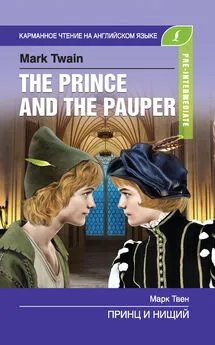Oscar Wilde - The Happy Prince and Ohter Tales
- Название:The Happy Prince and Ohter Tales
- Автор:
- Жанр:
- Издательство:неизвестно
- Год:неизвестен
- ISBN:нет данных
- Рейтинг:
- Избранное:Добавить в избранное
-
Отзывы:
-
Ваша оценка:
Oscar Wilde - The Happy Prince and Ohter Tales краткое содержание
The Happy Prince and Ohter Tales - читать онлайн бесплатно полную версию (весь текст целиком)
Интервал:
Закладка:
`It is a ridiculous attachment (что за смехотворная привязанность; to attach — прикреплять, attachment — прикрепление; привязанность) ,' twittered the other Swallows (щебетали другие Ласточки) , `she has no money (у нее нет денег) , and far too many relations (и слишком уж много родственников; relation — отношение, связь; родственник, родственница) ;' and indeed the river was quite full of Reeds (и, действительно, та речка сильно заросла Тростником: «была полностью наполнена Тростником»; full — полный, заполненный) . Then, when the autumn came (затем, когда пришла = наступила осень; to come (came, come)) , they all flew away (они все улетели) .
ripple ['rip(ə)l ] courtship ['ko:t∫ip ] ridiculous [ri'dikjυləs ]
`Shall I love you?' said the Swallow, who liked to come to the point at once, and the Reed made him a low bow. So he flew round and round her, touching the water with his wings, and making silver ripples. This was his courtship, and it lasted all through the summer.
`It is a ridiculous attachment,' twittered the other Swallows, `she has no money, and far too many relations;' and indeed the river was quite full of Reeds. Then, when the autumn came, they all flew away.
After they had gone (после того, как они улетели; to have (had), to go (went, gone)) he felt lonely (он почувствовал себя одиноким; to feel (felt) — чувствовать), and began to tire of his lady-love (и начал тяготиться своей возлюбленной; to begin (began, begun), to tire — утомлять, терять интерес; lady — дама, love — любовь) . `She has no conversation (с ней не поговоришь: «у нее нет разговора») ,' he said (сказал он) , `and I am afraid that she is a coquette (и я боюсь, что она кокетлива = непостоянна; coquette — кокетка) , for she is always flirting with the wind (так как она всегда заигрывает с ветром; to flirt — флиртовать, кокетничать) .' And certainly (и, конечно же) , whenever the wind blew (всякий раз, когда дул ветер; to blow (blew, blown) ), the Reed made the most graceful curtsies (Камышинка делала весьма грациозные реверансы; grace — грация, изящество) .
`I admit that she is domestic (я признаю/допускаю, что она /очень/ домашняя = домосед; domestic — семейный, домашний) ,' he continued (продолжал он) , `but I love traveling (но я люблю путешествовать) , and my wife, consequently (и моя жена, следовательно) , should love travelling also (также должна любить путешествовать) .'
`Will you come away with me (ты полетишь со мною; to come — приходить, идти, to come away — уходить) ?' he said finally to her (сказал он, наконец, ей; final — последний, заключительный) ; but the Reed shook her head (но Камышинка покачала головой; to shake (shook, shaken) — трясти) , she was so attached to her home (она была настолько привязана к /своему/ дому) .
coquette [kəυ'ket ] curtsy ['kə:tsi ] consequently ['konsikwəntli ]
After they had gone he felt lonely, and began to tire of his lady-love. `She has no conversation,' he said, `and I am afraid that she is a coquette, for she is always flirting with the wind.' And certainly, whenever the wind blew, the Reed made the most graceful curtsies. `I admit that she is domestic,' he continued, `but I love travelling, and my wife, consequently, should love travelling also.'
`Will you come away with me?' he said finally to her; but the Reed shook her head, she was so attached to her home.
`You have been trifling with me (ты играла с моими чувствами: «со мной»; to trifle — шутить, не принимать всерьез, играть) ,' he cried (крикнул он) , `I am off to the Pyramids (и я лечу к Пирамидам; to be off — уходить, отправляться) . Good-bye!' and he flew away (и он улетел /прочь/) .
All day long he flew (он летел целый день) , and at night-time he arrived at the city (и к ночи он прибыл в город; time — время) .
`Where shall I put up (где же я остановлюсь /на ночлег/; to put up (at) — останавливаться в гостинице) ?' he said; `I hope the town has made preparations (я надеюсь, что город подготовился /к встрече/: «произвел приготовления»; to prepare — приготавливать, готовить заранее) .'
Then he saw the statue on the tall column (затем он увидел статую на высокой колонне; to see (saw, seen) ).
`I will put up there (я остановлюсь там) ,' he cried (воскликнул он) ; `it is a fine position (это прекрасное место; position — положение) with plenty of fresh air (и много свежего воздуха; plenty — изобилие, множество) .' So he alighted (тогда он сел; to alight — сходить; опускаться, садиться) just between the feet of the Happy Prince (как раз между ступней = у ног Счастливого Принца; foot (мн.ч. feet) — нога, ступня) .
trifling ['traifliŋ ] pyramid ['pirəmid ] alight [ə'lait ]
`You have been trifling with me,' he cried, `I am off to the Pyramids. Good-bye!' and he flew away.
All day long he flew, and at night-time he arrived at the city. `Where shall I put up?' he said; `I hope the town has made preparations.'
Then he saw the statue on the tall column. `I will put up there,' he cried; `it is a fine position with plenty of fresh air.' So he alighted just between the feet of the Happy Prince.
`I have a golden bedroom (у меня золотистая спальня; gold — золото) ,' he said softly to himself (сказал он тихо /сам себе/; soft — мягкий, нежный) as he looked round (оглядываясь вокруг: «в то время как он оглядывался вокруг») , and he prepared to go to sleep (и он собрался заснуть: «приготовился отправиться спать») ; but just as he was putting (но как раз тогда, когда он прятал; to put — класть, ставить, положить) his head under his wing (/свою/ головку под /свое/ крыло) a large drop of water fell on him (большая капля воды упала на него; to fall (fell, fallen)) .
`What a curious thing (странное дело; curious — любознательный, любопытный, странный) !' he cried, `there is not a single cloud in the sky (в небе нет ни единого облачка) , the stars are quite clear and bright (звезды такие /совершенно/ чистые и яркие) , and yet it is raining (и все же идет дождь; rain — дождь, to rain — идти, литься /о дожде/) . The climate in the north of Europe (климат на севере Европы) is really dreadful (действительно ужасный/отвратительный; dread — страх, ужас) . The Reed used to like the rain (Камышинке нравился дождь; to use — употреблять; used to do smth. — иметь в прошлом обыкновение делать что-либо) , but that was merely her selfishness (но это просто /из-за/ ее эгоизма; self — свое «я», сущность; selfish — эгоистичный, себялюбивый) .'
Then another drop fell (затем упала другая капля) .
curious ['kjυ(ə)riəs ] climate ['klaimit ] selfishness ['selfi∫nis ]
`I have a golden bedroom,' he said softly to himself as he looked round, and he prepared to go to sleep; but just as he was putting his head under his wing a large drop of water fell on him.
`What a curious thing!' he cried, `there is not a single cloud in the sky, the stars are quite clear and bright, and yet it is raining. The climate in the north of Europe is really dreadful. The Reed used to like the rain, but that was merely her selfishness.'
Then another drop fell.
`What is the use of a statue (какая же польза от статуи; use — употребление; польза, толк) if it cannot keep the rain off (если она не может защитить от дождя; to keep off — держать в отдалении) ?' he said; `I must look for a good chimney-pot (я должен поискать /хороший/удобный/ дымоход; to look for — искать, подыскивать) ,' and he determined to fly away (и он решил улететь; to determine — определять; принимать решение) .
But before he had opened his wings (но до того, как он расправил /свои/ крылья; to open — открывать, раскрывать) , a third drop fell (упала третья капля) , and he looked up (и он взглянул наверх) , and saw — Ah! what did he see (и увидел — ах, что же он увидел) ?
Читать дальшеИнтервал:
Закладка:
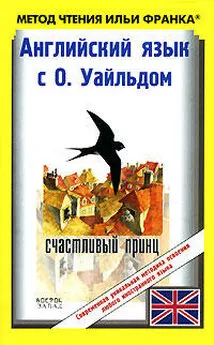
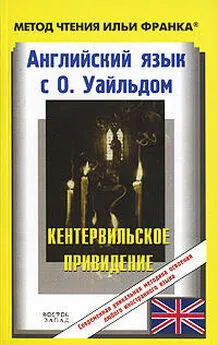
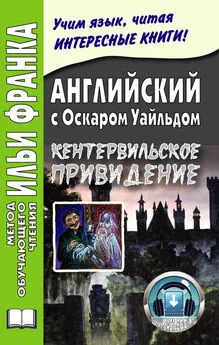
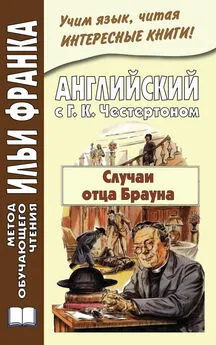
![О Генри - Принцесса и пума [The Princess and the Puma]](/books/1076182/o-genri-princessa-i-puma-the-princess-and-the-pum.webp)

